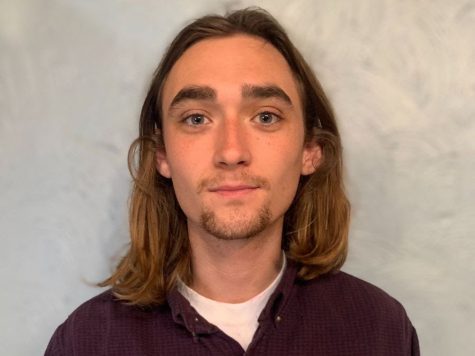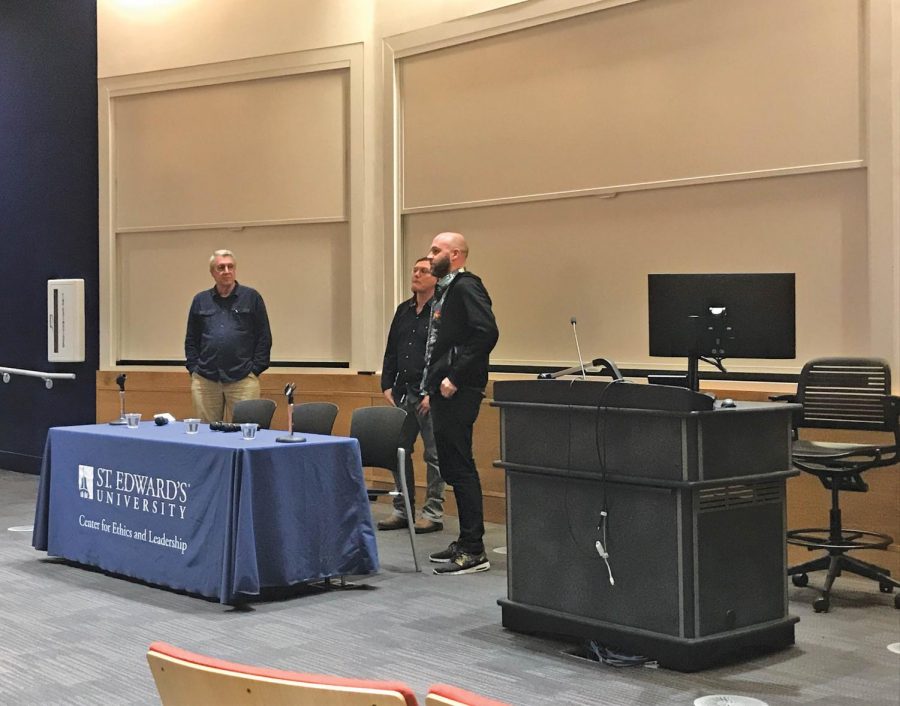Film on death penalty prompts discussion of its effects on prison system
Since 1973, 166 inmates on death row have been exonerated. To discuss the issue of wrongful convictions, the Center for Ethics and Leadership conducted a showing of The Penalty, a film that depicts the discussion around capital punishment, on Oct. 30 in the Carter Auditorium.
The movie, directed by Will Francome and Mark Pizzey, centers around the issue of the death penalty and how it affects those involved. The film also discusses wrongful convictions, including the story of Damon Thibodeaux, a former death row inmate who was exonerated after spending 15 years in solitary confinement.
Currently, 30 states legally conduct executions. This creates deep ethical concerns for many people in these states. Allen Bohnert, an attorney for death row inmates, repeatedly explained in the film that executions are carried out on behalf of the public. The State of Ohio executed one of Bohnert’s clients, Dennis McGuire, in 2014, using a new controversial method which doctors say can leave the victim conscious during their suffocation. Ohio and other states have been forced to turn to new methods of execution after pharmaceutical companies refused to produce traditional execution drugs.
Bohnert argues the state has no right to take the life of a citizen no matter how heinous their crime.
The film also profiles the journey of Thibodeax after his release from prison. Thibodeaux was falsely convicted of raping and murdering his 14-year-old cousin but was exonerated after the revelation of new DNA evidence and a reassessment of his interrogation. False convictions are another point the film used to argue against the death penalty.
The third focus of the film was Darlene Farah, whose daughter was murdered. The State Attorney’s Office of Florida pushed to execute her daughter’s murderer, which Farah originally agreed to, but after realizing the much lengthier process capital cases entail, she decided against it. Farah’s story shows the toll capital punishment takes on the families of victims.
After the film viewing, executive producer Christopher Hird, director Will Francome and Thibodeaux took questions from the audience.
The group responded to a question about voting by explaining that citizens concerned about ending the death penalty should closely examine candidates in any major election. The group agreed voters should focus more on a candidate’s individual policy on the issue rather than their political party.
“Pay attention to your politicians,” Thibodeaux said.
The group further discussed the politics behind capital punishment in regard to the Trump administration.
“There was progress under the Obama administration, but the Trump administration is a little harder to crack,” Thibodeaux said.
During the discussion with the crowd, the group emphasized the idea of capital punishment as a trauma on the whole of society while still being conducted on behalf of society, echoing Bohnert’s ideas in the film.
“It has widespread trauma,” Hird said.
Hird is referring to the trauma a capital punishment case has on all involved including judges, prosecutors and jailers.
Thibodeaux expressed his own struggle of trying to stay positive after his time in prison.
“They stole 15 years of my life. I’m not going to give them anymore,” he said.

Hi! I'm Ben Cardillo, I will be graduating this May with a major in Writing and Rhetoric and a minor in Photography. I grew up in Tampa, FL (go Bucs),...







